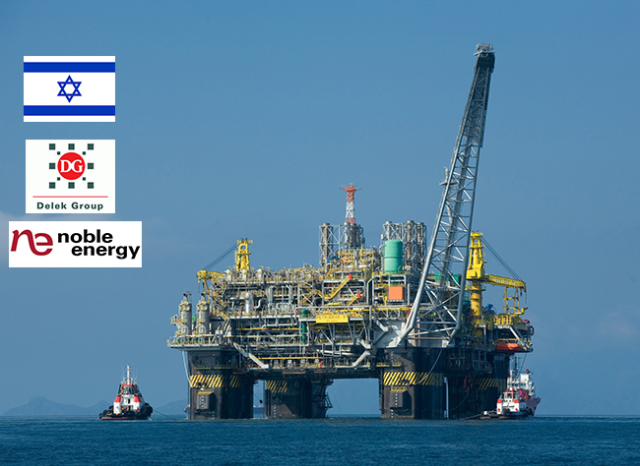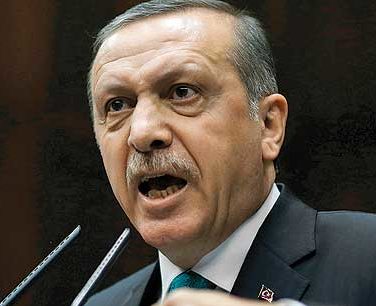Israel’s Gas Pains Relieved
Great business news from Israel this week. Israel has become a veritable cyber ware super power. According to Ha’aretz, sales of computer and network security technology reached more than $6 billion in 2014, accounting for 10% of the global $60 billion market place. The other great news was the resignation on Monday, May 25th of Dr. David Gilo, head of the independent Israel Antitrust Authority. In his statement Gilo said:
My decision is a result of a number of considerations, most importantly the report that the cabinet, particularly the Prime Minister’s Office, the Ministry of Finance, and the Ministry of National Infrastructure, Energy, and Water Resources, will do everything they can to push forward the currently emerging structure in the natural gas sector. I am convinced that such a structure will not lead to competition in this important market, and could possibly detract from the independence of the Antitrust Authority, a matter of public importance, and harm its ability to carry out unilateral measures
He had single handedly brought to a halt the development of Israel’s important off shore gas fields by the Israel-US partnership, Delek Group Ltd. (TASE: DLEKG) and Houston based Noble Energy , Inc. (NBL-NYSE) . The partnership had put up $6 billion in risk capital to develop the country’s offshore gas fields, achieving energy security, creating a potential wealth producing export market. Gilo stopped development of the giant Leviathan field in December 2014 when he reneged on a compromise deal reached earlier last year involving selling two existing smaller fields developed by the partners offshore in the country’s Exclusive Economic Zone (EEZ). While he resigned on Monday, May 25th, he won’t be departing until the end of August, 2015. Allegedly that would give him time to clean up his other consumerist initiatives. However, many believe based on his statement his real agenda was to take pot shots at the compromise plan being floated by the Ministries of Finance, Energy and Infrastructure, backed by Prime Minister Netanyahu for good and sound national security reasons. A legal opinion from the State’s attorney General provided authority for the government to develop and conclude the proposed agreement with the development partners. According to Globes, Israel Business, the compromise plan:
Requires Delek Group, Ltd. to sell all of its holdings in the Tamar natural gas reservoir within six years. Noble Energy, Delek Group’s partner will be required to reduce its holdings in Tamar from 36% to 25%, and will be barred from marketing gas from the Leviathan reservoir to Israel. At the same time, the agreement leaves Noble Energy with control of both reservoirs as the company operating them.
As we have written in both NER articles and Iconoclast posts Gilo was seeking to do the impossible. To create competition by forcing the sale of one of the two major fields, the Tamar, hoping to induce foreign competitors to make investments for the completion of the giant Leviathan gas field and thereby lowering energy prices through competition. Problem with that misguided view was there were few if any takers. Further, it put into jeopardy signed agreements for delivery of gas from the existing Tamar field with the Palestinian Authority, Egypt and Jordan. Moreover the government killed a potential minority investment by Australian energy development firm, Woodside, PTY for development of LNG from the Leviathan field and delivery to the Asian market. As a result, Nobel is presently working with the Republic of Cyprus to develop an LNG processing and distribution complex to link up with the Republic’s Aphrodite offshore gas field adjacent to that of Israel’s Leviathan.
In the run up to the March 17th, Knesset elections, it was apparent that Gilo was grandstanding perhaps hoping that the Zionist Union opposition might win. If that occurred he could pursue his consent decree proposal accusing the partners of being a monopoly in violation of Israeli basic law. Instead, Gilo and entourage took off for a junket to Holland to see how the Netherlands handled their off shore gas fields development.
It quickly became apparent that the Netanyahu government was not going to abide by this high handed patently political move by Gilo. At stake is more than $76 billion in potential tax revenues that might be used to offset burdensome national and other social program expenditures .
Prior to Gilo’s resignation, the Netanyahu government reached out to Professor Eitan Sheshinski at Hebrew University who had developed the original tax plan in 2010 to produce revenues from oil and gas developments both onshore and offshore. Sheshinski was appointed as adviser to Energy Minister Yuval Steinitz, who he had worked with in the development of the original tax plan. He suggested in a Globes Israel Business interview that liquidation of the Tamar field ownership would not lower prices. Additionally he said that Gilo’s original intent of controlling prices was unproductive. Sheshinski was cited by Globes saying:
All in all, today’s price is reasonable by the standards of Europe, and certainly at the level of the Far East. The price of gas in Europe is $8-10 per energy unit, and is about $15 in the Far East. Delek Drilling Limited Partnership (TASE: DEDR.L) and Avner Oil and Gas LP (TASE: AVNR.L) today reported that the average gas price in Israel in the first quarter of 2015 was $5.45 per energy unit.
Sheshinski also asserted that controls over natural gas prices might do more harm than good. “Controls give a lot of authority to a bureaucratic system, and experience does not justify optimism,” he said, adding, “I don’t see how the regulator in Israel can adapt himself to the many changes occurring worldwide in gas prices. You have to keep this as far as possible from the bureaucratic and political system.”
Globes noted the Finance Ministry’s compromise proposal for ‘soft pricing’:
The state proposed that the price of gas in future contracts be a weighted average of gas prices in the contracts that have already been signed in Israel.
Sheshinski’s assessment of the Gilo’s objective , liquidating the monopoly, that a duopoly would enhance price competition was wrongheaded:
Both global experience and economic theory explicitly state that anyone who thinks that a duopoly will cause perfect competition is wrong. In this matter, you also can rely on our experience in Israel. In a duopoly, the controlling shareholders have a common interest… some claim that a duopoly’s prices are even worse than those of a monopoly.
He went on to address the current international markets impacted by a spike in US oil and gas fracking production:
In my opinion, the goal is to ensure that gas prices in Israel are not different from those prevailing in similar countries around the world. A revolution is now taking place in global energy prices. The US is becoming the world’s biggest oil producer, and both oil and gas prices are on a downtrend. In my opinion, this trend will continue, and our goal should be not to pay more than the reasonable prices of countries in a similar situation with respect to gas reservoirs.
Another expert who happened to be in Eilat, Israel at an international conference this week was a law partner from the Washington, DC firm of Greenberg Traurig, Global Energy & Infrastructure Practice co-chairman, Kenneth Minesinger, “legal advisor of the Alaska state government in its negotiations with the oil and gas companies.” Minesinger had these comments in a Globes interview:
I’ve been advising the Alaskan government how to negotiate with the gas companies for decades. Like in Israel, two major reservoirs were discovered in Alaska: Prudhoe Bay and Point Thomson. The population there is small, and the gas industry is controlled by three companies.
Both Alaska and Israel are now trying to find out how to negotiate with the gas companies in a way that will safeguard the interests of the state and its residents, together with the gas companies’ interests.
I think that it’s necessary to act quickly in order to ensure development of the Leviathan reservoir, but hasty action motivated by panic isn’t the right way. What’s involved is an agreement that will ensure Israel hundreds of billions of shekels in revenue over the years, and serious consideration and the necessary time must therefore be devoted to this matter. In contrast to Alaska, the development project for the Leviathan reservoir is simple, but it is still difficult for an inexperienced country like Israel.
Minesinger pointed out that long term contracts must include development of a network of adequately sized pipelines connecting fields that are developed. Further, he suggested that pricing in such agreements should be formulaic and not based on a fixed single point basis. To overcome suspicions that developing companies might earn excessive profits Minesinger suggested distribution of profit sharing checks to Israel’s citizens akin to what Alaska presently does. He has also proposed to Alaska possible consideration of a state owned gas company.
The final comment on this week’s developments in the wake of the resignation of IAA head, Gilo, came in a Globes op ed from Norman Bailey, former Reagan national security aide and Haifa University policy expert, citing lessons learned:
The resignation of Prof. Gilo as head of the Antitrust Authority is undoubtedly good news. His reneging last December on the agreement he had made with the natural gas companies Noble, Delek and Ratio the preceding March had thrown the whole development of Israel’s offshore natural gas resources into confusion. The matter had already been badly handled by the government, which had driven out the Australian company Woodside, and Gilo’s retraction had put at risk the economic, financial and geo-political benefits of the gas discoveries. The government, after an unacceptable earlier draft, finally crafted a new, acceptable proposal over Gilo’s objections, which prompted his resignation. The lessons to be learned here are twofold: regulation is necessary but should not dominate at the expense of other relevant considerations; and agreements made should be honored, unless circumstances change fundamentally, which was not the case. Israel as a magnet for investment has been preserved.
We await announcement of an acceptable compromise plan to the parties involved to end this episode once again illustrating that rule of law must reflect economic market realities.
EDITORS NOTE: This column originally appeared in the New English Review.


